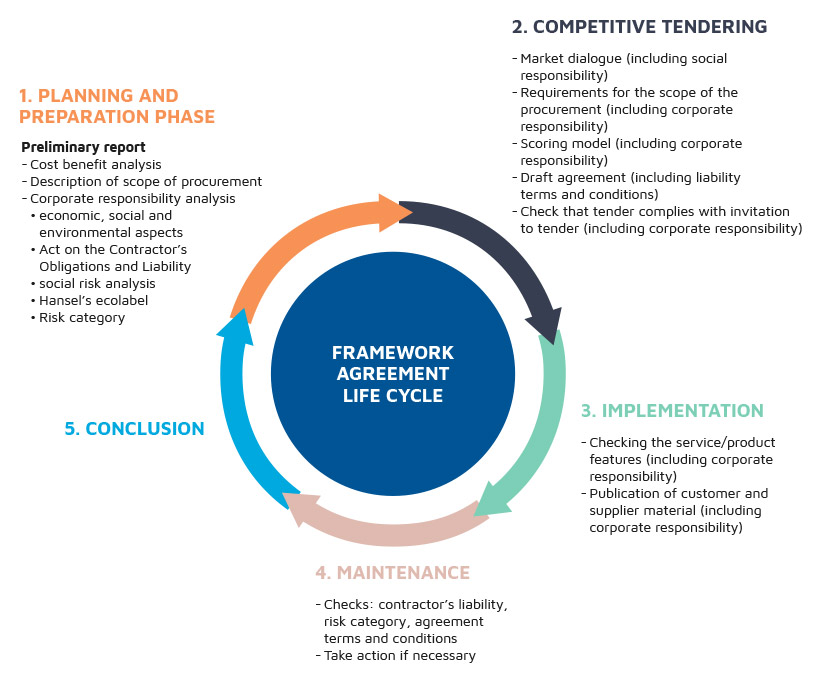Responsible procurement
Framework agreements are an efficient way of implementing government decisions with regard to procurement, because the volume of central acquisitions is significant – in 2017, the state procured products and services through framework agreements totalling €830 million in worth.
Thanks to this large volume, Hansel is able to influence the generation of new services and the development of more environmentally friendly products. Hansel can have an impact on what is available on the market by incorporating corporate responsibility aspects in framework agreements and setting criteria related to, for example, the environment.
Tendering processes organised by Hansel are carried out openly and fairly, in line with procurement legislation. All suppliers of goods and services who fulfil the minimum requirements set forth in the call for tenders are allowed to take part in the tendering processes organised by Hansel, in line with the open procedure.
Corporate responsibility aspects are taken into account in all stages of a procurement process:
- Needs assessment
- The tenderer’s eligibility
- Technical specifications: product or service features
- Comparison criteria: items for which a score is given
- Contractual terms and conditions and supervision of compliance
Accounting for CSR in framework agreements
Hansel offers its customers services and framework agreements which are easy to use and in which corporate responsibility aspects have been taken into account as widely as possible. Contract solutions are made in accordance with government guidelines and policies. The decision-in-principle to promote sustainable environmental and energy solutions in public procurement determines, for example, the emission levels of vehicles in government use, and the principles of energy procurement.
Hansel requires that the suppliers have paid their taxes and social security contributions and comply with statutory demands related to the environment, health and safety, working conditions, and terms of employment.


New solutions to old challenges
Public procurement, governed by the Act on Public Contracts, as well as the principles of central procurement involve factors that customers and suppliers alike may find inflexible or unclear.
Read more >>



 Read next
Read next